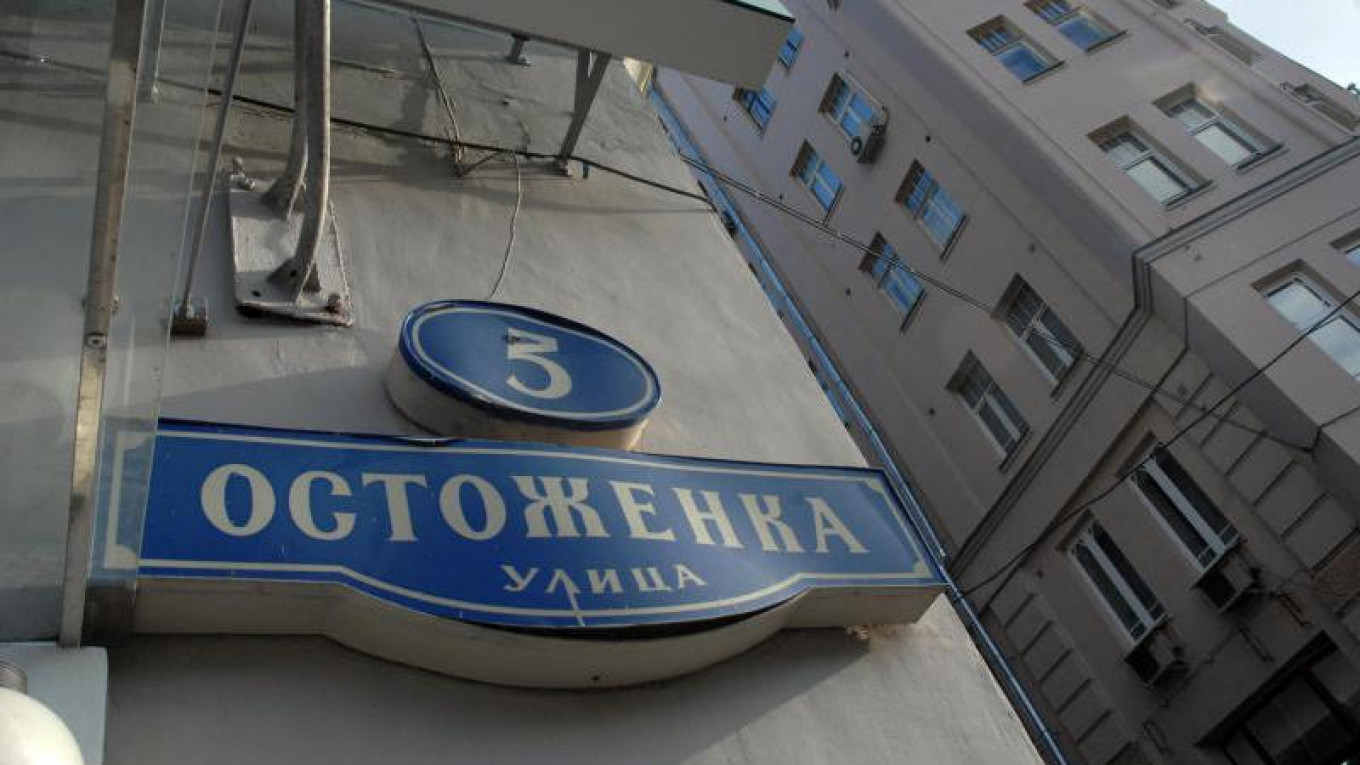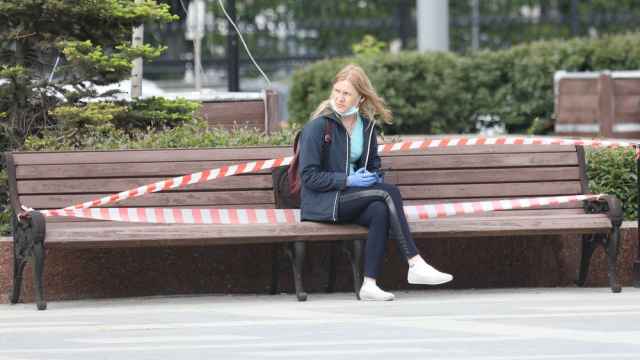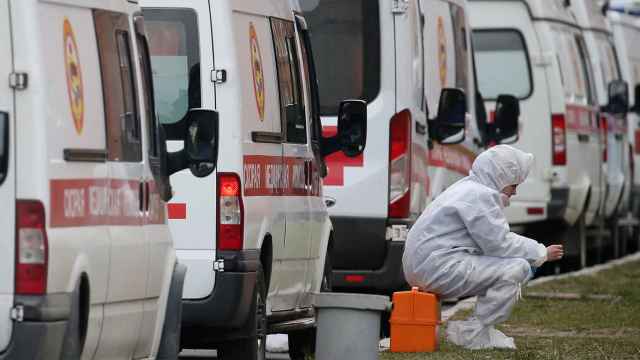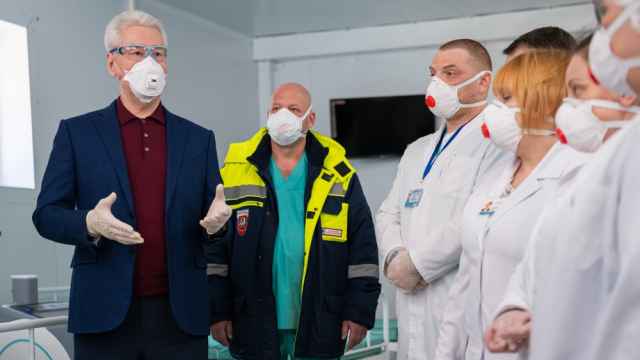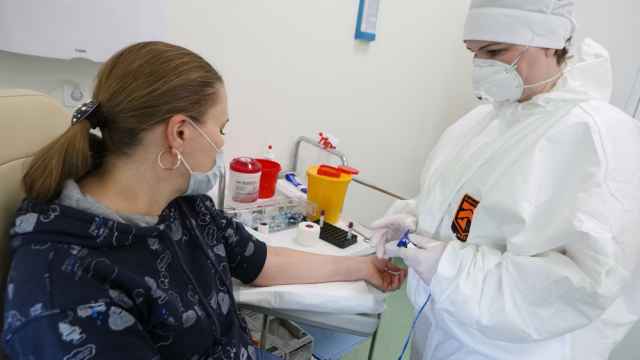Сивцев Вражек: Little Ravine by Sivka Creek
In honor of Moscow’s City Day, here’s a little primer on place names. With just a few rules, you’ll be able to tell what national or professional group lived in a neighborhood, which church stood there, who owned it, and even what the land looked like — just by reading the street names.
Let’s start easy. If a street in Moscow bears the name of another Russian city, then that was the road that led to it, like Тверская (Tverskaya, the road to Tver) or Калужская площадь (Kaluzhskaya Ploshchad, the starting point to Kaluga).
If the name of a street sounds like a surname, it’s either the name of the first owner or the name of an important person. So Гагаринский переулок (Gagarinsky Pereulok) was once part of the princely Gagarin family holdings, but Улица Гагарина (Ulitsa Gagarina) was named after the first man in space, Yury Gagarin.
If a street name sounds religious, there was probably a church or monastery there. For example, Георгиевский переулок (Georgievsky Pereulok) means there must have been a St. George church or monastery. An odd one is Якиманка (Yakimanka), a conflation of Иоаким и Аннa (Joaquim and Anna, parents of Mary). There was a chapel dedicated to them in a church on the street.
Next up: professions. In Moscow people who shared the same profession were given land to form a small community, called a слобода. Some district names tell the story of who worked there. In Таганка (Taganka) lived makers of таганы (iron pot stands). Хамовники (Khamovniki) was a neighborhood of weavers of хамовное полотно (rough canvas).
Streets can tell the same story, like Бронная (armor makers) and Гончарная (potters). Those who manned the tsar’s kitchens had their own neighborhood: the cooks lived on Поварская, the waitstaff on Столовый, tablecloth weavers on Скатертный, bakers on Хлебный, knife makers on Ножовый, and pipe makers on Трубниковский.
Near Red Square you’ll find streets that were originally Ряды (Rows) where stalls sold a particular product, like Хрустальный (Crystal Lane) and Рыбный (Fish Lane). On Ветошный переулок people sold ветошь — a kind of cloth used as lining.
Sometimes a street tells you the nationality of the people who lived there. The various streets named Грузинский (Georgian) indicate that the Georgian prince was given land here. Армянский переулок (Armenian Lane) is self-explanatory, but Маросейка needs a bit of deciphering. It was the place where people from Ukraine lived, which was then called Малороссия. That got shortened to Малоросейка, which eventually morphed down to Маросейка.
Большая Ордынка was the road to the Орда (the Golden Horde, the “great state”). In that part of Замоскворечье (land beyond the Moscow River), you can find streets where their representatives lived, like Малый Татарский переулок (Little Tatar Lane), and where their translators settled, like Малый Толмачёвский переулок (Little Translator’s Lane). Толмач is the old word for a translator.
You can even tell what the land looked like: Крутицкая улица (Steep Street) tells you that the riverbank was high in that spot. Пресня had fresh water (пресная вода). And that little street with too many consonants, Сивцев Вражек, was once a little ravine (from the word оврага) down to the creek Сивка.
In Moscow, the street names speak. You just need to listen.
Michele A. Berdy is a Moscow-based translator and interpreter, author of “The Russian Word’s Worth,” a collection of her columns.
A Message from The Moscow Times:
Dear readers,
We are facing unprecedented challenges. Russia's Prosecutor General's Office has designated The Moscow Times as an "undesirable" organization, criminalizing our work and putting our staff at risk of prosecution. This follows our earlier unjust labeling as a "foreign agent."
These actions are direct attempts to silence independent journalism in Russia. The authorities claim our work "discredits the decisions of the Russian leadership." We see things differently: we strive to provide accurate, unbiased reporting on Russia.
We, the journalists of The Moscow Times, refuse to be silenced. But to continue our work, we need your help.
Your support, no matter how small, makes a world of difference. If you can, please support us monthly starting from just $2. It's quick to set up, and every contribution makes a significant impact.
By supporting The Moscow Times, you're defending open, independent journalism in the face of repression. Thank you for standing with us.
Remind me later.



